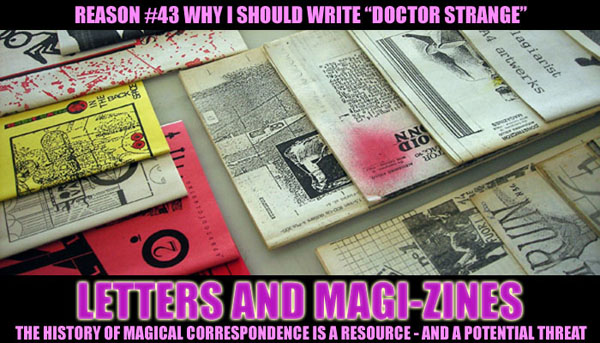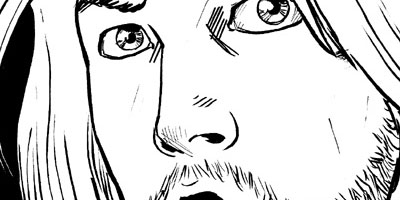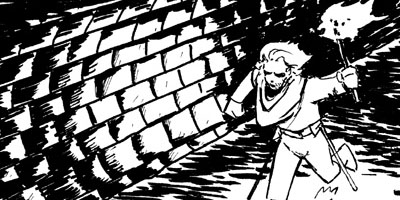
Most people think of magic instruction as being your basic master/student relationship (not least because so many people just think of it as being like how the Jedi do things in Star Wars), and sometimes this is, in fact, the case. Certainly it was the case for Stephen Strange’s introduction to magic, but what many people overlook is that the Ancient One was a fairly gregarious man as mages go in the first place (and quite possibly it is that ability to simply connect with and understand other people that makes for a good Sorcerer Supreme). Indeed, the one master/one student rule exists because most practitioners of magic simply don’t care for other people much, and if the system is to maintain itself then it shall maintain itself with the minimum stress to its users, and that is how it works.
This is not terribly surprising; after all, pursuing magic is in many ways a rejection of society as a whole. In the modern era it is a rejection of science; in the past it was a rejection of religion. Working magic almost always means defying not only societal norms but the things you have been raised and conditioned all your life to believe as true, to reject your own experience as true. Or, to put it more glibly: it is very hard to fire a magical zappy bolt when you have never fired a magical zappy bolt before, and it becomes harder when you have never seen anybody else fire a magical zappy bolt, and when they have never have never seen anybody fire a magical zappy bolt… it adds up. Which meant that many practitioners of magic had (and even today still have) to abandon society just to get anything done, and not coincidentally why the profession tends to be somewhat misanthropic at the best of times.
Still, magicians need to learn somewhere, and for years the only option was master/student in person, typically with the master demanding the student pay him a stipend or be a servant or what have you. This started changing in the mid-18th century as correspondence among the upper classes (who of course had most of the magic, as not having to work fourteen hours a day to avoid starving definitely gives one a leg up in studying magic) became more prevalent. Sir Humphrey Zzaxx-Clarkson, like many other mages of the era, began his career by sending a polite and very carefully worded letter to someone he (correctly) thought knew a few things. The polite response contained answers, and other names a promising young tyro could correspond with. And so the second age of magic instruction began – decentralized and somewhat impersonal, oftentimes limiting the students to basic tricks, and generally lending itself to any number of devastating flameouts (one thing at which master/student relationship excels is “keep student from blowing self up”), but on the whole was vastly more efficient at generating mages in greater quantities than previous years.
And this would have been fine, except for one thing: the extension of mass correspondence to the lower classes. This is not to say that the upper classes were deserving of magic, of course, but it is a simple human tendency that, when you generally have a good life, you’re more wary about risks – say, the inherent risk of binding a minor cacodemon to a candle so you have a permanent source of light, or something similar. Many of the minor aristocrats pursuing magic in the 18th and 19th centuries through correspondence would barely cast more than two or three spells a year. But when you’re the first person in your family to ever be able to read – you’ve usually got need for more than two or three spells a year.
Still, even though poor people now had the opportunity (mostly in America, of course) to learn magic through correspondence, it didn’t really explode until the late 1920s and the dawn of the pulp magazines. Magic enthusiasts followed Weird Tales and all the other fantasy, horror and weird pulps, and if there was only one truly enthusiastic student for every hundred people sending around their homemade fan magazines dedicated to Robert Howard or Lord Dunsany – that was enough, because those homemade magazines were like The Anarchist’s Cookbook on steroids and LSD all at once. The floodgates opened, and they never really closed from then on out, and it is not for nothing that in the Marvel Universe, this was when superpowers started emerging around this time in quantity. (Of course science was involved as well – but not all of the new powers emerging were scientific in their origin.)
This isn’t to say that all of the new superhumans emerging in 616 at this time were magic users; this isn’t even to say all those powers were caused by magic. But magic is fueled by belief and will, and when you suddenly have a lot more of all three sloshing around, there are knock-on effects. (Chupacacabras did not, in fact, exist until 1922, at which point they always had.) Magic is not predictable; loose, wild magic being powered by extraneous belief can do almost anything, and usually will.
Why does this matter to Dr. Strange in the present day? Well, it matters for three reasons. Firstly, it matters because quite frequently the answer to a magical dilemma can be found in correspondence between two sorcerers who have both been dead for over a century, which means negotiating with the people who now hold those letters. (Dr. Doom, unsurprisingly, has a large library of it.) Secondly, it matters because it’s still happening today via email and secured forum posting – and, yes, snailmail for the traditionalists – which means at any given point there are literally dozens of would-be wizards casting spells and unintentionally (one hopes) causing chaos that can be a tremendous bother when you are Sorcerer Supreme.
And thirdly, it means that someone clever enough and reckless enough will eventually realize that if he can make magical communication hit critical mass – by popularizing it, getting people to challenge themselves, ideally without them even knowing that they’re doing so – he can change the world itself forever, even if he’s not sure what result he’ll get. And preventing that is definitely part of the Sorcerer Supreme’s job, because one of the things you have to realize about magic is that by its very nature it can’t be for everybody, no matter how antidemocratic that may sound.






